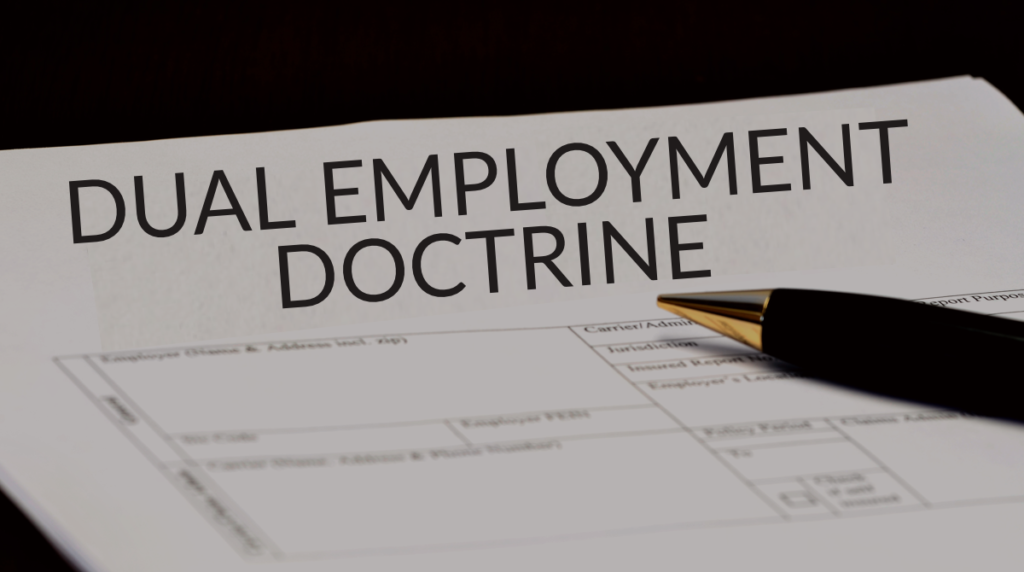Written By Christopher B. Dolan and Emile A. Davis
This week’s question comes from Mel in Oakland who asks: I worked for a temp agency and was assigned to work reception at a startup company. While I was working, the boss of the startup asked a few of us to move a large desk in the entrance way. When we were moving the desk, one of the employees lost their grip, and the desk fell directly on me, fracturing my ankle. I was the only temp and hoped to be made permanent.
Am I entitled to get worker’s compensation; can I sue them in court? Who is responsible for this- the startup or my temporary agency? I am lost, please help.
Dear Mel,
I am sorry you suffered an injury at work and that the lack of guidance from your employers has compounded your frustration. Your question raises some interesting legal issues. The first issue is whether you would be entitled to worker’s compensation benefits. Generally, a person is entitled to worker’s compensation benefits if they are injured within the scope of or arising out of their employment. At first glance, that appears to be the case with your situation, but the employer who provides your paycheck is the temporary agency. The law has anticipated this type of situation, and there is something known as the “dual employment” or “borrowed servant” doctrine. The dual employment doctrine, at its core, recognizes that while the agency is your “employer,” the startup company is controlling the day-to-day activities of your work, and should also be recognized as your employer. The agency is considered the “general employer” and your relationship with the startup is what is known as a “special employer.”
Whether this dual employment relationship exists is a question of fact and comes down to questions of control. The special employer must be controlling many of the aspects of the employment to be deemed responsible. They are very similar questions as determining if a person is an employee or independent contractor:
- who determines when the workday starts and ends;
- the ability to hire or fire;
- the assignment of tasks and projects;
- who is paying for the tools of the trade; and
- similar issues of control.
In some cases, this can be a difficult analysis. However, in the standard reception position, the startup would be able to terminate your contract, ask you to answer phones in a specific way, greet people coming in, or even, move a desk. It seems, on the limited facts presented, that the startup would indeed be your special employer. That means that you would be eligible for worker’s compensation benefits since your injury arose out of and within the course of your employment.
The best practice would be to immediately notify both the startup as well as the temporary agency of your injury and the manner it occurred. One of the two will likely provide contact information for their worker’s compensation insurance to administer your claim. The startup and the temp agency may have contractually determined who will be responsible for providing worker’s compensation benefits between themselves. Either way, you should be covered.
The last part of your question is whether you could sue the startup company in court. Generally, where someone is entitled to worker’s compensation benefits, those are the “exclusive remedies” available. You cannot sue either employer directly in court since the exclusive remedies are within the worker’s compensation system. However, it is important to look whether a third party (someone other than your employers) contributed to the harm. A third party is not subject to the limitations of the worker’s compensation system. If a separate company was moving a new desk in and they dropped it on your foot, you would likely be entitled to worker’s compensation from your employers and have a right seek recovery from the third- party desk movers in court. Notably, that does not allow a person to seek recovery two times for the same injury. The worker’s compensation provider would have a right to recovery of what they provided (wage loss and medical bills) from any recovery in the third-party court case.
I hope that helps you understand the complexities underlying your straightforward question.










